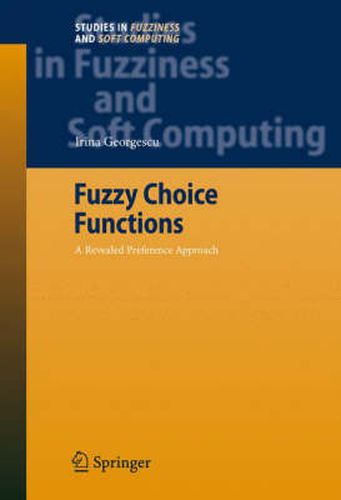Readings Newsletter
Become a Readings Member to make your shopping experience even easier.
Sign in or sign up for free!
You’re not far away from qualifying for FREE standard shipping within Australia
You’ve qualified for FREE standard shipping within Australia
The cart is loading…






This title is printed to order. This book may have been self-published. If so, we cannot guarantee the quality of the content. In the main most books will have gone through the editing process however some may not. We therefore suggest that you be aware of this before ordering this book. If in doubt check either the author or publisher’s details as we are unable to accept any returns unless they are faulty. Please contact us if you have any questions.
This book extends the theory of revealed preference to fuzzy choice functions, providing applications to multicriteria decision making problems. The main topics of revealed preference theory are treated in the framework of fuzzy choice functions. New topics, such as the degree of dominance and similarity of vague choices, are developed. The results are applied to economic problems where partial information and human subjectivity involve vague choices and vague preferences.
$9.00 standard shipping within Australia
FREE standard shipping within Australia for orders over $100.00
Express & International shipping calculated at checkout
This title is printed to order. This book may have been self-published. If so, we cannot guarantee the quality of the content. In the main most books will have gone through the editing process however some may not. We therefore suggest that you be aware of this before ordering this book. If in doubt check either the author or publisher’s details as we are unable to accept any returns unless they are faulty. Please contact us if you have any questions.
This book extends the theory of revealed preference to fuzzy choice functions, providing applications to multicriteria decision making problems. The main topics of revealed preference theory are treated in the framework of fuzzy choice functions. New topics, such as the degree of dominance and similarity of vague choices, are developed. The results are applied to economic problems where partial information and human subjectivity involve vague choices and vague preferences.